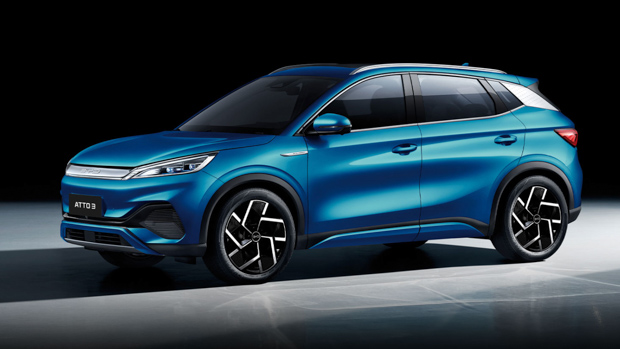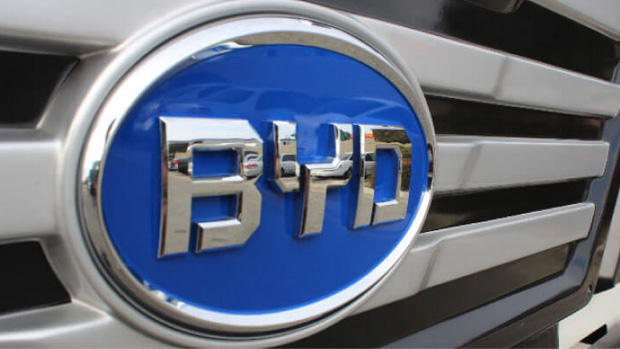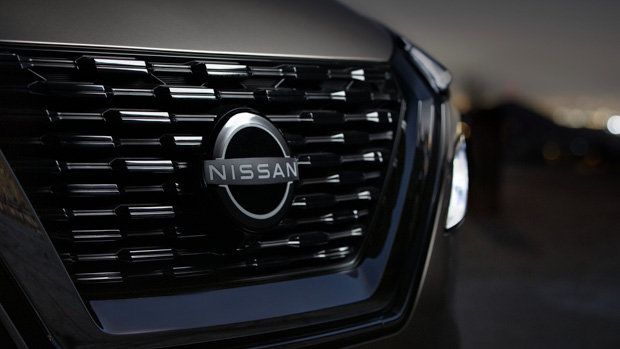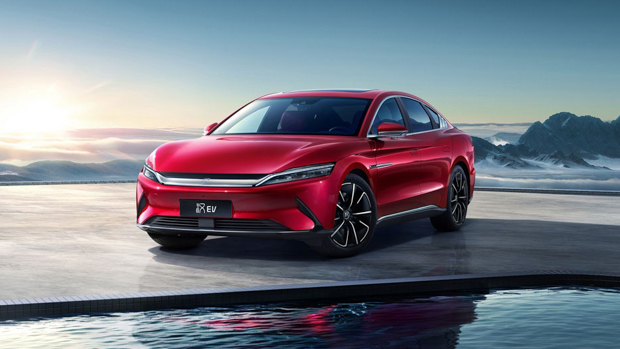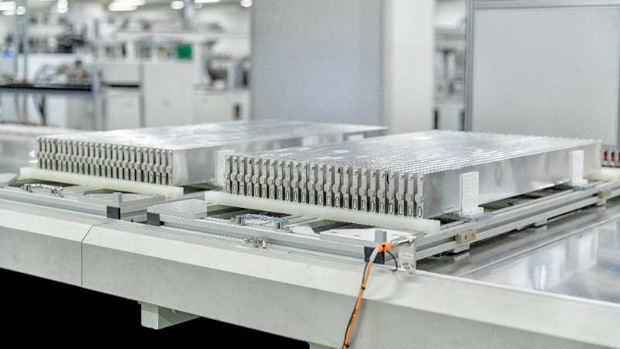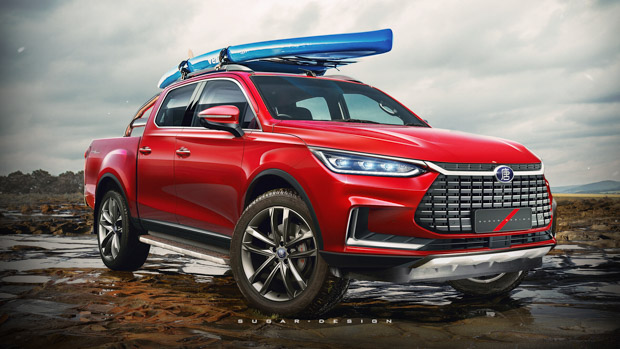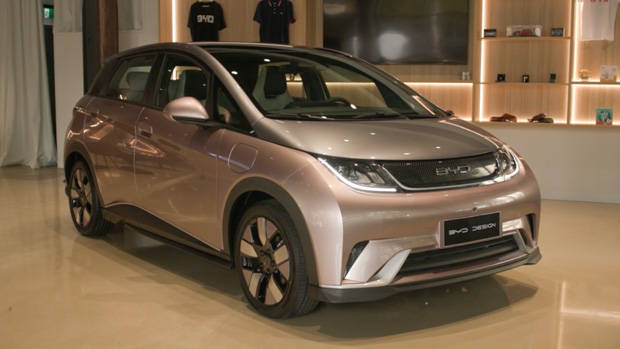-
Car Reviews
- Car News
-
Car Comparisons
Latest comparisons
- Chasing Deals
While few Australians currently know the car brand BYD, the manufacturer known as China’s Tesla aims to sit on hundreds of thousands of Aussie driveways soon
The Australian distributor of Chinese car manufacturer BYD has outlined its intention to become a top-five car manufacturer by sales in Australia by 2024.
Such an achievement would be a coup unlike any seen before in the Australian car industry, with the relative newcomer having to topple the likes of Volkswagen and Mitsubishi in order to join today’s top five best-selling brands: Toyota, Mazda, Hyundai, Ford and Kia.
In an extensive interview with the head of BYD’s exclusive Australian distributor EV Direct, Chasing Cars learned of the brand’s intention to rapidly dial up production for Australia, with sales relying on low entry pricing to win buyers out of mainstream brands.
Central to the goal will be the Australian release of eight new BYD models by 2024, with new BYD cars entering the country’s most popular segments. All are fully electric, with BYD being referred to in some quarters as China’s Tesla.
Deliveries of BYD’s Atto 3 small SUV will commence in July, with the $45K crossover set to be joined in December by the BYD Han sports sedan and Atto 2 light car. All are set to offer at least 300km of electric driving range, though charging speeds are lower than many other mainstream EVs, being limited to 80kW DC.
But BYD has told Chasing Cars that it will quickly add a dual-cab ute, set to compete in one of Australia’s most popular segments, with a 2024 Australian release date likely following a 2023 reveal. The BYD electric ute could become the first EV dual-cab on the market.
EV Direct head Luke Todd also confirmed that BYD would launch a range of other models in Australia in 2022, 2023 and 2024. These include an upper-midsize SUV called the Song Pro in China, plus a large seven-seat SUV to compete with the Mazda CX-9.
Later in 2022, Australia will also score a raised vehicle with a sedan-like shape, codenamed the Seal, to provide a comfort-focused alternative to the sportier, lower BYD Han sedan.
That leaves room for one more, currently unknown BYD launch by the end of 2024: possibly a production version of the brand’s E-Seed GT concept coupe that was shown at the 2019 Shanghai motor show alongside the Song Pro crossover.
The Australian car industry accounted for 1,049,831 sales in 2021, with Toyota retaining its title as the best-selling manufacturer with 223,642 units sold.
From there, it was a significant drop in sales to second place holder Mazda (101,119), followed by Hyundai (72,872 ), Ford (71,380) and Kia (67,964) to round out the top five.
Assuming that sales numbers were retained in the top-five in 2023, EV Direct would need to be well on the way to shifting roughly 68,000 cars and SUVs across the year to achieve its goal.
EV Direct confirmed to Chasing Cars that production capacity of 1500 units per model line had been secured for Australia and New Zealand – if accurate, that means BYD has a total capacity for eight models of 144,000 cars for the two Oceania markets.
It’s important to point out that such an achievement, in less than 18 months since EV Direct’s launch of a full-time range, would be an unprecedented success in the Australian market.
For context, relative newcomer Tesla is considered a huge success after recording 12,094 sales of the Model 3 (it’s only model currently on sale) after entering the market back in late 2014.
Luke Todd, chief executive officer of EV Direct told Chasing Cars the deadline would admittedly be “a bit tight”, but noted the business had two years of planning prior to launch and the production capacity to make it happen.
“We’ll have three full-scale production vehicles on the market by then, so why not?”
Mr Todd said EV Direct’s progressing partnership with the Eagers Automotive dealership network and establishing a serving avenue through MyCar would allow them to reach buyers across Australia.
“Eagers deliver tens of thousands of cars every month, now having them as a partner enable to enable us to scale up very quickly was a very strategic move on our behalf,” he said.
But even with increased availability and an aggressive focus on affordability and features, EV Direct would likely need to out-sell the likes of Mitsubishi, Nissan and Volkswagen who are all well-known brands in Australia with an expansive line-up of vehicles.
Following the launch its the Atto 3 small SUV in July, EV Direct plans to welcome the Atto 2 hatchback, known as the Dolphin in China, to Australia in December 2022 with a keen starting price of under $35,000.
The pair will be followed by a dual-cab ute, raised sedan, midsize SUV and a large SUV with all featuring fully-electric underpinnings – plus two more models that are yet to be confirmed.
Mr Todd said the company has secured dedicated access to production lines in China for the Australian and New Zealand markets, capable of bringing up to 1500 units of each car it sells, every single month.
Multiplied across a year, BYD says it has the theoretical capacity to sell 18,000 of each model and 144,000 across the entire line-up – 120,000 of which would be available for Australia.
Mr Todd said EV Direct had held off their full introduction until it could deliver a new line-up of vehicles that delivered on factors that mattered to Australian buyers such as driving range, safety, performance and affordability.
“EVs aren’t for everybody,” he said. “We don’t anticipate that 100 percent of the market will switch to EVs when (EVs) are only at two percent (market share).”
“What our goal and our job is to take that two percent and make it more like 10 percent (of the market),” he said.
BYD Auto was founded in 2003 and offers a range of commercial and passenger vehicles that have been introduced to large markets outside of Chinese such as Europe and the United States in recent years.
While BYD’s passenger vehicles are being distributed through EV Direct in Australia, the Chinese conglomerate already offers a range of electric buses which are built at factories in New South Wales and Victoria.
Last year saw the rapid growth of Chinese brands reach an unprecedented milestone as the SAIC Motor-owned MG implanted itself among Australia’s top-10 best selling car manufacturers for the first time.
MG was the ninth best-selling manufacturer with 39,025 sales, ahead of Subaru (37,015) and trailing just behind household names like Nissan (41,263) and Volkswagen (40,770) in a year when most manufacturers struggled to secure enough supply to meet demand.
A strong effort from Great Wall Motors, with the Cannon ute and suite of SUVs under its Haval sub-brand, saw its sales almost triple from a low base of 650 to 1520 sales.
Geely Auto Group has also expressed its intention to bring its emerging brand Lynk & Co to the Australian market, following the success of sibling brands Polestar, Lotus and Volvo who either offer, or plan to offer, Chinese-made vehicles.
Latest news
About Chasing cars
Chasing Cars reviews are 100% independent.
Because we are powered by Budget Direct Insurance, we don’t receive advertising or sales revenue from car manufacturers.
We’re truly independent – giving you Australia’s best car reviews.
